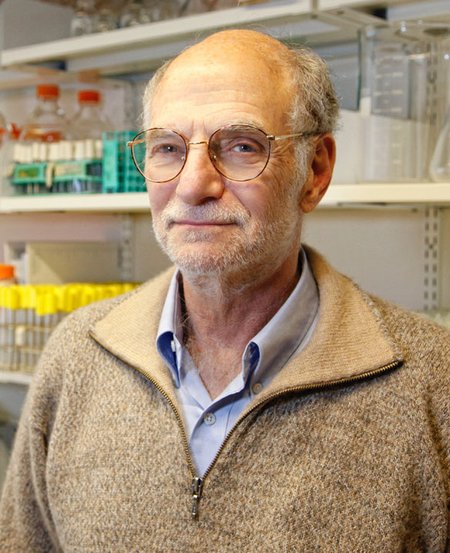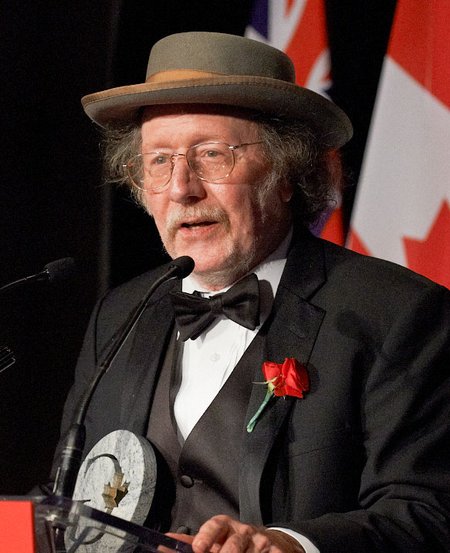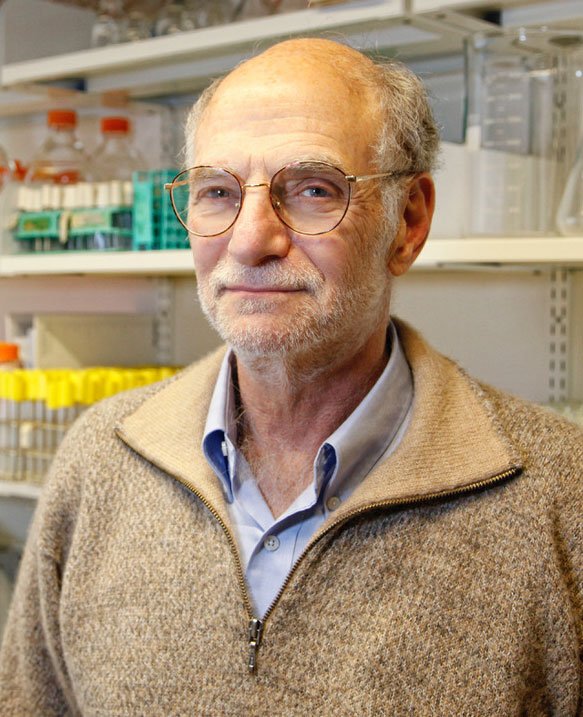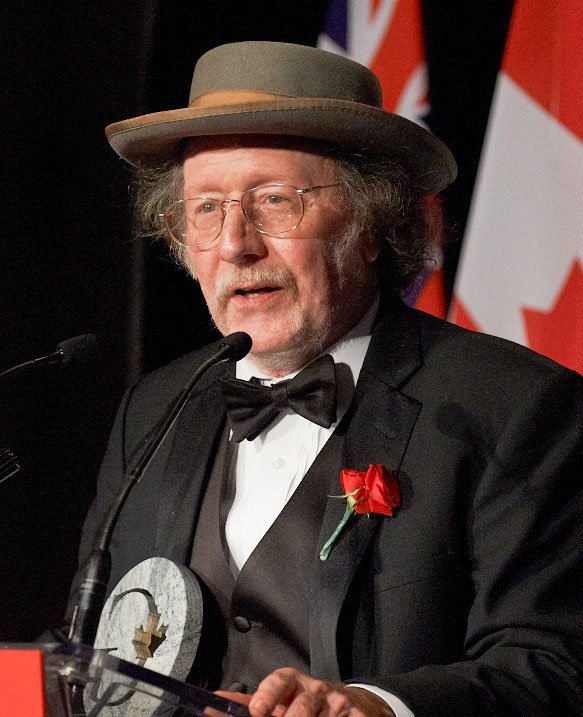Michael Rosbash (BS '65), the Peter Gruber Endowed Chair in Neuroscience and professor of biology at Brandeis University and an investigator with the Howard Hughes Medical Institute, has been awarded the 2017 Nobel Prize in Physiology or Medicine. He shares the prize with Jeffrey C. Hall, a professor emeritus of biology at Brandeis and former postdoctoral fellow at Caltech, and Michael W. Young, the Richard and Jeanne Fisher Professor at Rockefeller University. The trio were honored for identifying the gene that controls circadian rhythms.
The foundations for their research were laid by the late Seymour Benzer of Caltech, who helped pioneer the field of modern genetics and extensively studied the connections between genes and behavior. In the 1960s, Ron Konopka (PhD '72), a graduate student in Benzer's lab, discovered that mutant Drosophila melanogaster fruit flies could have a shorter-than-normal circadian rhythm, a longer-than-normal circadian rhythm, or no circadian rhythm at all. Konopka and Benzer concluded that the mutations occurred on a yet-to-be-identified gene they called period.
"Before that discovery, people had no idea how circadian rhythms were controlled," says David Anderson, Caltech's Seymour Benzer Professor of Biology, the Tianqiao and Chrissy Chen Institute for Neuroscience Leadership Chair, and an investigator with the Howard Hughes Medical Institute. "The circadian cycle is a clock, and there are a lot of different ways you can break a clock. Not only did they find a clock that didn't run, they also found a clock that ran too fast and a clock that ran too slow."
In the early 1970s, after earning a PhD from the University of Washington, Hall joined Benzer's research effort. He later established his own lab at Brandeis, where he began collaborating with Rosbash, who had earned a bachelor's degree in chemistry at Caltech in 1965 and a PhD in biophysics from the Massachusetts Institute of Technology in 1971 before joining the Brandeis faculty in 1974.
In 1984, Rosbash and Hall succeeded in identifying and sequencing the period gene. Young, a competitor of Rosbash and Hall, also sequenced the gene around the same time. Rosbash and Hall later discovered that period encoded a timekeeper protein that accumulated in the nuclei of cells during the night and degraded during the day. That protein, they found, interacted with two other genes, timeless and doubletime, to create a self-sustaining feedback loop that runs at the same frequency as the earth's day-night cycle, ensuring that an organism sleeps and is active at appropriate times.
Research over the following decades continued to refine our understanding of how the period, timeless, and doubletime genes are controlled and how they regulate physiological conditions like metabolism and sleep behavior.
"What identifying that gene did was open up an entire field," Anderson says. "This was getting your hands on the physical components of the clock for the first time. Their work shows that there is a virtually universal biological mechanism for controlling circadian rhythms."
Rosbash, a native of Kansas City, Missouri, who grew up in Massachusetts, is a member of the National Academy of Sciences. He was awarded the Gruber Prize in Neuroscience in 2009, the Louisa Gross Horwitz Prize for Biology or Biochemistry in 2011, the Massry Prize in 2012, and the Wiley Prize in Biomedical Sciences in 2013. He shared each of the awards with Hall and Young as well. He was named a Caltech Distinguished Alumnus in 2001.
To date, 35 Caltech alumni and faculty have won a total of 36 Nobel Prizes. In 2015, alumnus Arthur McDonald (PhD '70) received the Nobel Prize in Physics for the discovery that neutrinos can change their identities as they travel through space.
 Michael Rosbash (BS '65), the Peter Gruber Endowed Chair in Neuroscience and professor of biology at Brandeis University and an investigator with the Howard Hughes Medical Institute, was awarded the 2017 Nobel Prize in Physiology or Medicine.
Credit: Courtesy of Brandeis University
Michael Rosbash (BS '65), the Peter Gruber Endowed Chair in Neuroscience and professor of biology at Brandeis University and an investigator with the Howard Hughes Medical Institute, was awarded the 2017 Nobel Prize in Physiology or Medicine.
Credit: Courtesy of Brandeis University
 Jeffrey C. Hall, a professor emeritus of biology at Brandeis and former postdoctoral fellow at Caltech, was awarded the 2017 Nobel Prize in Physiology or Medicine.
Credit: Courtesy of Brandeis University
Jeffrey C. Hall, a professor emeritus of biology at Brandeis and former postdoctoral fellow at Caltech, was awarded the 2017 Nobel Prize in Physiology or Medicine.
Credit: Courtesy of Brandeis University


